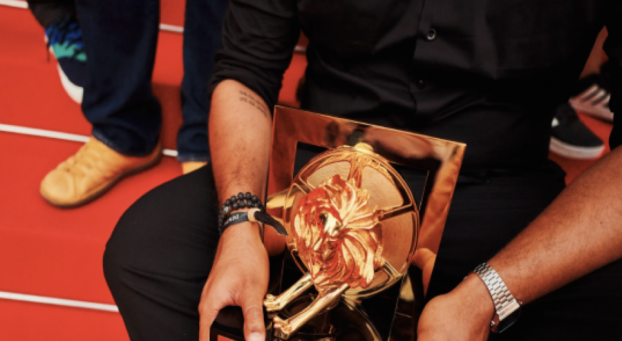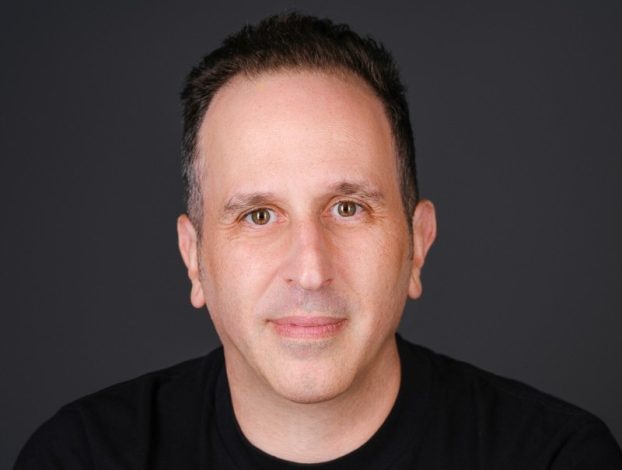From live Facebook chats with a rock star to beating Tony Hawk at his own videogame, entertainment brands are using digital tools like social media to engage youth – of all ages – in first-person interactions with the celebrities they adore
Call it the Justin Bieber effect (and if you don’t know who that is, keep reading). Young fans have come to expect, nay, demand instant access and interaction with their favourite artists. When they’re not tweeting they’re watching exclusive videos and making their own. And companies like Universal Music – which owns Island Records, which signed the 16-year-old megastar from Stratford, ON. – are catching on.
Perhaps the reason his screaming fans feel like they own him (Google “Justin Bieber Jimmy Kimmel” for a prime example) is because they made him. Bieber got his start by uploading his performances of songs by established artists like Justin Timberlake and Usher onto YouTube – videos which got so many hits, the latter is now his producer. The teen sensation tweets and Facebooks (yes, that is a verb) directly with his fans on a daily basis.
As young fans rally around their latest heartthrobs and best girls, this has become the go-to-market model for launching new bands in Canada. Universal Music signed the Edmonton band Stereos after they appeared on MuchMusic reality audition show DisBand, in which bands are coached before facing a jury who decides if they deserve a shot at the big time. The day after the episode aired, the Stereos single “Summer Girl” was number one on iTunes, and sold 10,000 units in the first week. It went gold in two weeks and finally double platinum in Canada.
“Our goal going in, [with] many of the artists that we sign domestically, is to first build a community, from that community we will get the sales,” says Universal Music Canada Interscope marketing manager JP Boucher, who leads Stereos marketing in Canada. “The day after the episode aired, we used online advertising to push the single [and] advertised the Facebook group to get people to join.”
In the next six months building up to the album release, the majority of marketing activity took place online, with ads on teen networks driving to video blogs, live Facebook chats, behind-the-scenes videos and contesting “to draw people back to the page, get people interested in the band enough to help spread the word,” says Boucher. The number of Facebook fans grew from 1,000 in May to over 150,000 in August, and at press time – hot off the band’s double Juno nomination – was hovering just shy of 170,000.
The payoff? “Because of this strong community we have, we were able to knock the Black Eyed Peas off the chart for one week when ‘Throw Ya Hands Up’ came out and debuted at #1 on the Soundscan digital songs chart [last November],” says Boucher.
The album debuted at number three in October, and since then Universal has been driving sales of the deluxe version by offering some life-sized gifts with purchase: $11.99 (compared to $9.99 for the regular MP3 version) gets you a meet-and-greet with the band on their next stop through your town, as well as three bonus tracks and another single once a month for the next year.

The resulting sweaty-palmed photo-ops can then be uploaded onto Flickr and displayed in a feed on Wearestereos.com, which also serves as a source of news and other info. Boucher claims this is the first time this kind of package has been offered with an album, anywhere.
“For artists’ official websites, we don’t go too in depth with them anymore, because really it’s all about social media,” says Kristen Burke, who handles Universal’s Disney Music Group artists like the Jonas Brothers and Vancouver-based Shiloh. “That’s where fans want to be able to interact and engage, and we’re working more on viral tools that allow that fan to be integrated into something that incorporates them with the band.”
After Shiloh’s single “Operator” came out in late 2008, fans were invited to record and upload videos of themselves performing the song. Shiloh chose a few to be edited together with her own footage to create a video that was then posted online.
Speaking of videos, despite MTV’s much publicized renaming from “Music Television” to simply MTV, the format isn’t dead – it’s just moved onto the web. “Videos are premiering online, but then they’re sharing it, and the capability to share and pass on is invaluable,” says Burke, who says she’s seen a jump in digital sales in the teen market from 6% to 8% share to 18% to 20% in the last six months. “The way people are purchasing music is changing: having that online advertising and connecting it to an instant purchase is the way that we’re starting to see the shift.”
Music isn’t the only area taking advantage of shifts in consumer consumption and demand for real-time access to superstars. For actors like Daniel Radcliffe – better known as Harry Potter – this can involve a lot of elaborate technological fireworks. The latest trick was the first-ever worldwide “live community screening” (LCS) of Harry Potter and the Half-Blood Prince exclusive to those who bought the film on Blu-ray.
Radcliffe and director David Yates logged in from London on Dec. 12, 2009 to chat with fans and watch the movie “together.” Fans were also treated to a sneak peek of Harry Potter and the Deathly Hallows.
Back in Canada, where budgets are smaller overall, Maple Pictures VP marketing Joanna Miles says a full 20% of her entire ad budget is now dedicated to online, and it’s growing with every picture. “Unfortunately the money had to come from somewhere else,” she says. “Most of our films are for males 18 to 34, and they’re not the biggest newspaper readers, so we tend to put a bit more of our budget online.”
Miles partners with sites like cross-border Heavy.com on page takeovers, site dominations, catfish banners (which stick to the bottom of your browser window as you scroll down the page) and value-adds like interviews and exclusive trailers. “We try and stay away from just doing the norm, and do something that’s eye-catching,” she says. “Film is a visual medium, so we do a lot of video, not too complicated because we want to keep your attention. It’s all very action-y, edited quickly, lots of things blowing up, lots of guns, so it lends itself to digital marketing.”
To promote vampire flick Daybreakers in January, Miles worked with Canadian expat Stef Sebbag’s L.A.-based Big Picture Group (BPG) to create BMPpharma.com, a vampire recruitment site and viral tool that worked to populate Maple’s Facebook fan page at the same time. Stats on shares weren’t available at press time, but the site has earned almost 17,000 page views, the majority in the four-day run-up to the release on Jan. 8.
For Kick-Ass, an adaptation of the comic by Mark Millar which lands in theatres April 16 and which Miles says will probably be their biggest film this year, Maple pitched in to get Canadian access to the Lionsgate-produced superhero generator at Iwillkickass.com, via which fans can get closer to their idols in a different way: by creating a virtual superhero version of themselves on the site, they’ll have a chance to win the ultimate fanboy (or fangirl) prize: an “appearance” in an upcoming Kick-Ass comic. In other words, immortality.

“Often we rely on the marketing initiatives out of the U.S. because of their deep pockets, so things like the superhero generator we often piggyback on,” says Maple VP publicity and promotions Angie Burns.
The Canadian marketing efforts launched at the end of March, including a national broadcast promotion with MTV Canada, which includes a co-branded effort with MTV.ca/moviehead that’ll send one lucky geek to Comic-Con in Chicago this August, just in advance of the fall DVD release.
“The unique online component of the promotion is that whoever wins the prize is going to be a digital correspondent for MTV,” says Burns. “They’re going to blog, they’re going to take photos and videos and it’s all going to be uploaded onto MTV’s site, and they’re going to be used for coverage of Chicago Comic-Con, and by extension for us and Kick-Ass.”
In the meantime, Burns is working on a major viral push to get as many bloggers and influencers out to see the movie as possible – an unusual move considering advance screenings are typically exclusive affairs.
But Burns says this demo – with its combination of digital savvy and rabid creativity – is a special case. “They’re integral to the success of this movie,” she says. “We think they’re going to like it, and we really want to get them out to see it.”
Meanwhile on the small screen, Showcase Canada had a different challenge when it bought the rights to adapt web series Pure Pwnage for TV (pronounced “pure ownage,” the name is a nod to a common typos made by online gamers, “ownage” being a player’s domination of a given game). The scripted, mockumentary-style show follows Jeremy, an avid online gamer, out of the basement into the real world when his mother forces him to get a job.
To reach the existing online fanbase – the show has been running on Purepwnage.com since 2004, and the site receives 200,000 unique visitors a month – Canwest produced a series of 10 mobisodes and, starting in January, seeded them online one by one to bridge from the web to the cable medium. The online media buy included music, entertainment, gaming and technology sites, AOL Canada, Gorilla Nation and a homepage takeover of Heavy.com on March 12.

“Knowing that there’s an existing fan base for the show, we’ve being talking to the online audience, getting them excited about the series, seeding them with some mobisodes and content to get them buzzing,” says Jennifer Mason, senior manager, marketing strategy, Canwest Broadcasting.
For current Showcase audiences, Pure Pwnage is positioned as a fish-out-of-water comedy along the lines of Kenny vs. Spenny or Trailer Park Boys, says Mason.
To target males specifically, Showcase went where no woman would dare to tread: the men’s room. A buy with Zoom coupled a static print ad with a 15-second non-audio video spot, to get a feel for the content, says Mason. The print ad included a QR code that linked to more exclusive content – a minute-long video of Jeremy talking about the show that then pushes to the website, where more content like games and mobisodes can be found.
For Canwest, this demo presented an opportunity to try some new tricks in an on-message way. “They’re pretty tech-savvy, they’re always looking for the latest and greatest of what’s happening, and they’re definitely on the pulse of what’s new,” she says. “The QR code is a great example; this is definitely the audience that would use it. We’ll be able to test it to see the kind of traffic we get to the website.”
Reaching gamers was crucial to establish credibility for the project among the grown-up-teenager set. Along with a targeted buy on sites such as Joystick, Gizmodo and Fanboy, Canwest approached Microsoft Canada to partner with Xbox Live, known as the console of choice for hardcore online gamers.
The campaign included a multi-channel ad buy with Xbox Live, which directs viewers to a 15-second promo when clicked. The buy also includes in-game inventory for action, adventure and sports games.
The partnership was capped with a live event March 25, in which premium Xbox Live members played a videogame live against the star of the show, actor Jarrett Cale, through the “Game with Fame” (GwF) program.
The program is exclusive to Xbox Live Gold members, who pay a subscription fee for extras like HD movies, Twitter and Facebook access, advance access to new titles and discounts.
Xbox has set up exclusive GwFs with high-profilers like Tony Hawk, in support of his Tony Hawk Ride game, as well as musicians like Hedley, Billy Talent, K-os and Lights, to name a few.
“Labels are of particular interest,” says Christina Verdurmen, lifestyle marketing manager at Xbox. “They are facing a tough road in terms of looking for new and exciting ways to promote albums and bands.”
For gamers, it’s a chance to beat Tony Hawk at his own game, literally. You know, like, totally pwn. Hopefuls sign in, search the gamer tag for their celeb of choice, and add them as a friend. They have to be online half an hour before the game is scheduled to start – kind of like waiting for your TV show to come on, back in the day – and then a random group are chosen to participate.
“It is a fairly exclusive opportunity, it’s something that doesn’t happen every day,” says Verdurmen. “Being able to chat through the headset with the celebrity while you’re playing your favorite Xbox game – not only are you getting a chance to virtually meet your favourite artist or sports hero, you’re also able to play the game with them and bond in that way.”
And like with Universal’s meet-and-greets or Maple’s superhero generator, this kind of access creates a sense of ownership among the community, a one-on-one relationship with Microsoft. “Consumers have a lot more control than they’ve ever had, and to feel that control through our brand is huge for them,” says Verdurmen.
While the Pure Pwnage effort is a fit with the Xbox’s core gamer target, Microsoft has also used the program to reach out beyond the 18-to-34-male set with celebrities like Toronto-based female pop artist Lights or rapper K-os. “We do try to also tie to people that will help to broaden our reach,” says Verdurmen. “So that all of our gamers are able to participate in all of the fun.”





















